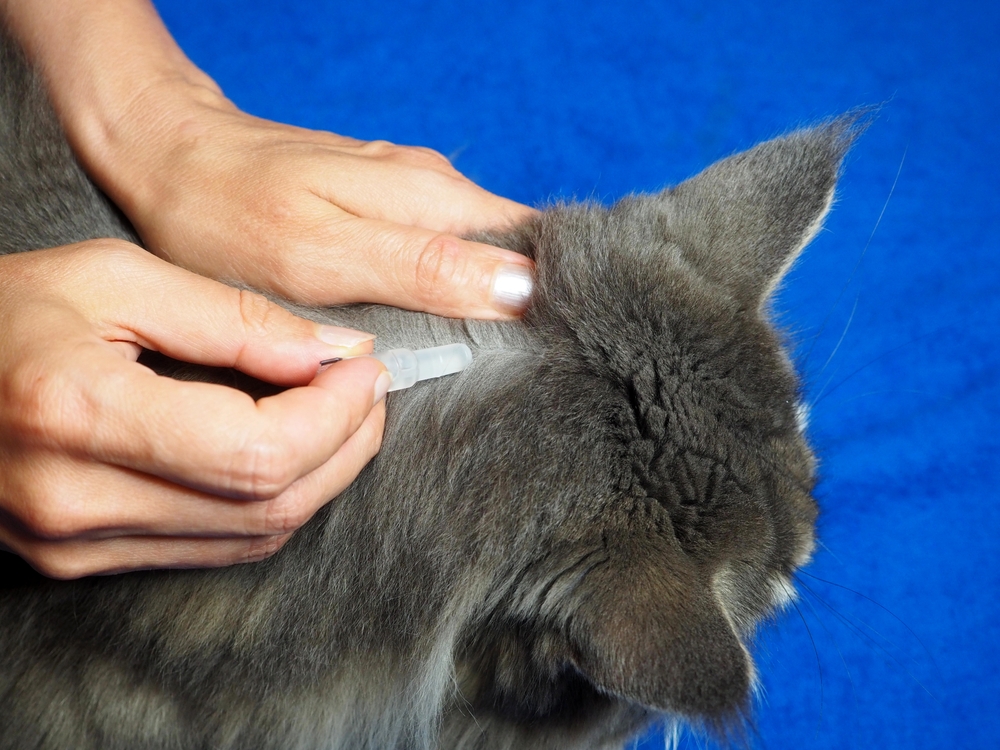Medications are often necessary for pets to treat disease, fight infection, and prevent common illnesses. However, our furry friends are not always cooperative. Many pet owners struggle with giving their pets medication, whether it comes in a pill, liquid, or topical treatment form. Our Memorial Animal Hospital team understands the struggle, and we have some practical tips on how to safely administer medications to your four-legged friend.
Discuss medication resistance with our veterinarian
Before attempting to force your pet to take their medication, talk to our team. We will cover the details about medication dosage, frequency, and how to administer it to your pet. When you share your concerns with us, we can often devise a practical solution, such as switching a medication to a liquid form or showing you straightforward ways to give your furry pal their meds. Together, we will ensure your pet gets the medication they need for their health and wellbeing.
Tips for medicating cats
Cats may be more resistant to taking medication than dogs, since they’re often cautious about new tasks and what they ingest. To make the process easier and safer, consider the following suggestions:
- Wrap your cat in a towel — For particularly feisty cats, wrapping them in a towel, ensuring you cover their legs and torso, can help restrain them gently while you give them their medication. This swaddling technique can help prevent scratches and bites while keeping your cat secure.
- Use pill pockets — Pill pockets are soft, tasty treats with a hollow center designed to conceal pills. Many cats readily accept pills hidden inside pill pockets, making it easier to administer medication.
- Crush pills with food — If your cat refuses to take pill pockets, consider crushing the pill into a fine powder (only under the guidance of our veterinarian) and mixing it with a small amount of wet food or tuna juice. Some medications cannot be crushed or taken with water, so check with our veterinary team first.
- Use a syringe — For liquid medications, a dropper or syringe small enough for your cat’s mouth can make giving medication a breeze. Gently squeeze your cat’s jaw at the hinges to open their mouth, then aim the syringe between the cheek and gumline, toward the back. Never dispense the medication into the throat because this can cause choking.
Tips for medicating dogs
Many dogs are food-motivated so you can incorporate that into how you give them their medication. The following are some go-to methods:
- Hide capsules in pill pockets or treats — Like cats, many dogs can be easily medicated using pill pockets or hiding medication in their favorite treats. This method capitalizes on their enthusiasm for food, making the process more enjoyable.
- Conceal pills and capsules in food — Carefully hide the pill in a small amount of pet-safe food your dog enjoys, such as peanut butter (xylitol-free), lunch meat, or plain cream cheese.
- Use a pill popper — Pill poppers or guns are devices designed to hold pills securely and release them directly into your dog’s mouth with minimal fuss. This method is beneficial for dogs who are skilled at detecting medication hidden in food.
- Use a syringe — Your dog’s liquid medication will come with a dropper or syringe suitable for their size. Syringes have marked lines indicating the dosage amount, making accuracy easy.
- Incorporate positive reinforcement — Dogs thrive on rewards, so give your pup praise, treats, or playtime immediately after administering their medication to create a positive association with the experience. This can help reduce anxiety and make future medication sessions more pleasant.
A word about pet topical medications

Creams, ointments, and sprays can be straightforward to apply. However, many pets will try to lick the meds off their skin (sometimes immediately after application). Stay with your pet until the medication has been wholly absorbed into their skin. You can also use an e-collar if your best buddy continues to bite or lick the treated area.
Medicating your cat or dog can be challenging, but it’s necessary to keep your pet healthy. If you’re struggling to give your pet their medication despite your best efforts, don’t hesitate to contact our Memorial Animal Hospital team.






Leave A Comment